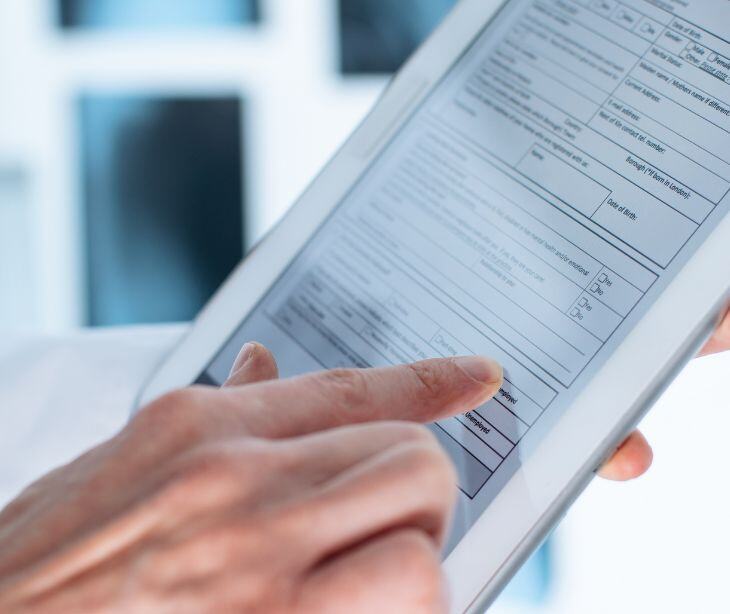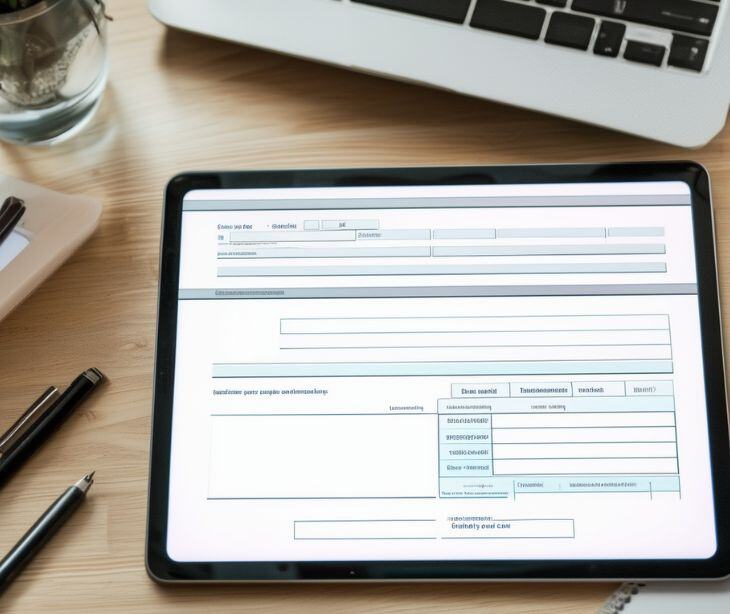
While EHRs store and manage patient data, providers must use HIPAA compliant forms to uphold patient privacy and meet legal requirements.
What are electronic health records (EHRs)?
An electronic health record (EHR) transforms a patient's health profile into a digital format, replacing conventional paper records. It can include diagnoses, medications, lab results, allergies, immunizations, and imaging reports.
Unlike paper records, EHRs give healthcare providers quick access to patient information, saving time and improving efficiency in patient care.
However, not all EHRs are automatically HIPAA compliant.
What are HIPAA compliant forms?
HIPAA compliant forms are documents used to collect, store, and transmit patient information securely, as mandated by the Health Insurance Portability and Accountability Act (HIPAA).
More specifically, these forms safeguard patients’ protected health information (PHI) through measures like encryption and access controls. HIPAA compliant forms, like Paubox forms, are customizable to create patient intake, consent, and medical history forms.
See also: A HIPAA consent form template that's easy to share
HIPAA compliant forms vs EHRs
Patient intake and consent
Providers must use HIPAA compliant forms for patient intake and consent processes, protecting PHI from the start.
For example, when a new patient arrives at a clinic, they fill out a HIPAA compliant intake form that collects their medical history, insurance details, and consent to treatment. Providers then enter this data into an EHR system that adheres to HIPAA regulations.
Furthermore, HIPAA compliant forms provide the documented consent needed before entering patient information into the EHR system.
Authorization for PHI release
Patients must complete a HIPAA compliant form to permit sharing their medical information with third parties. Like, if a patient needs a referral to a specialist, they must sign an authorization form allowing their primary care physician to share relevant medical records.
Without HIPAA compliant forms, EHRs alone would not fulfill the legal requirements for authorized data release, potentially leading to unauthorized PHI disclosures.
Addressing specialized situations
In specialized situations, like when patients participate in clinical trials, HIPAA compliant forms help providers document information that cannot be integrated into the EHRs.
For example, a patient participating in a clinical trial might need to sign specific consent forms detailing how their data will be used for research purposes.
Managing non-EHRs integrated processes
Not all patient interactions are captured directly within the EHR system. So, providers can use HIPAA compliant forms for processes like patient feedback, surveys, telehealth registrations, or appointment scheduling.
Ultimately, these forms secure patient data and maintain compliance, regardless of whether they are recorded in the EHR system.
Facilitating emergency situations
Providers must use HIPAA compliant forms in emergency medical services (EMS), especially when EHR access is limited. These forms ensure that patient rights are protected even under urgent situations. In addition, they help streamline communication between EMS providers and other healthcare professionals involved in the patient's care.
Meeting documentation requirements
HIPAA requires that patient authorization forms be maintained for a minimum of six years. Although EHR systems store patient data, they don’t address the documentation requirements for compliance or capture the specific details of treatment authorization.
HIPAA compliant forms offer specific records of patient consent, meeting these requirements. Providers can use these records during HIPAA audits or legal reviews to demonstrate compliance. These forms can help prove adherence to HIPAA standards, supporting accountability and transparency.
Go deeper: How long should HIPAA compliance audit logs be kept?
FAQs
Do all patient forms need to be HIPAA compliant?
Yes, any form that collects, stores, or transmits protected health information (PHI) must be HIPAA compliant to protect patient privacy. HIPAA compliant forms, like Paubox forms, use encryption to safeguard PHI and identifiable information like names, addresses, and financial information.
How often should HIPAA compliant forms be audited?
Providers should conduct regular HIPAA compliance audits at least once a year. Regular audits help ensure non-compliance issues are promptly identified and addressed, reducing the risk of data breaches and penalties.
How long must HIPAA compliant forms be retained?
The National Institute of Standards and Technology (NIST) suggests keeping audit logs for a minimum of six years to ensure transparency, accountability, and data integrity.
Regular monitoring and auditing of these logs are needed to identify any unauthorized access or security breaches, allowing for prompt investigation and resolution to protect patient privacy.
Subscribe to Paubox Weekly
Every Friday we'll bring you the most important news from Paubox. Our aim is to make you smarter, faster.



